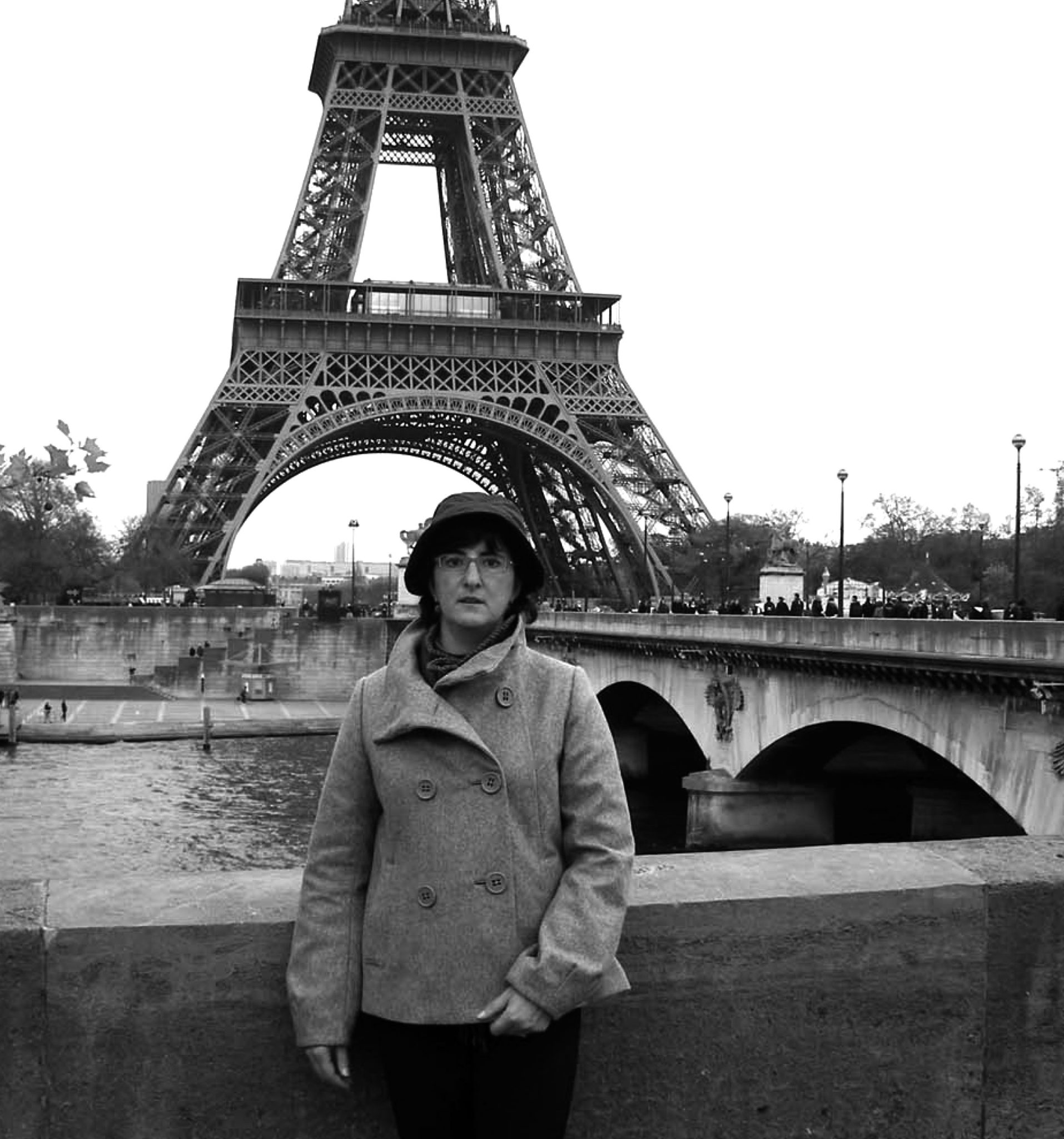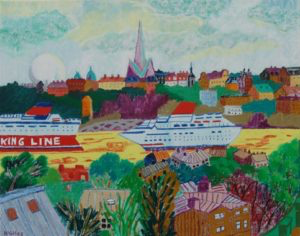BARCELONA, 1964 Núria Vallès

Thanks to color his sensitivity, always active when it comes to serving the collective will to find new goals for the spirit, manifests itself in a highly convincing way.
Painter who has a solid background in the academic aspect, both in philosophy and in art, and who has not allowed himself to be dominated by intellectual speculation or by the exclusive representation of tangible reality.
BIOGRAPHY
Born in Barcelona in 1964. Graduated in Philosophy from the University of Navarra (1987), in 1991 she obtained a scholarship to the Academy of Finland (Helsinki) and a year later she worked as an associate researcher at the University of Glasgow (Scotland).
In 1990, the world of painting began. He studied drawing at the University of Helsinki, watercolor at Glasgow and, later, oil at the Academy-Sphere of Art Workshop in Sant Cugat. In 2005 he worked the urban landscape with Manuel Ruiz Ortega, professor at the Faculty of Fine Arts of Barcelona.
He has made several exhibitions, both individual and collective, inside and outside our country. He has also won prizes such as: Poster Award of the Francisco Cabanas Alibau Rapid Painting Competition, Sant Cugat del Vallès, in 2000; Second European Prize 2006, Galleria d’arte moderna Alba (Italy), Scholarship from the Ministry of Culture for the promotion of Spanish artists; First Prize X Contest Chamber of Commerce of Spain in France and College of Spain in Paris (2008).
NÚRIA VALLÈS
by Josep M. Cadena
The color – that is, the light – is the great finding of Núria Vallès as a painter. Thanks to color his sensitivity, always active when it comes to serving the collective will to find new goals for the spirit, manifests itself in a highly convincing way. Before his paintings – when I write this I think, especially in the one titled Awakening and that represents the urban agglomeration of the city of Barcelona – we do not feel any fear of the municipal public and Espeso that Ruben Darío would say, but we feel the joy of how a diversity of characters knows how to find the joy of a task in union without ever renouncing their own identity. And even more; with the awareness of Nature that we must respect – the trees that we find in the first place; the work that dignifies us – the chimneys and the tallest buildings; the religious spirituality of a tower – which summarizes those of the temple of the Holy Family; and the cosmic sense of the sea, the mountain and the sky.
I do not want to dwell on the description of the paintings of Núria Vallès in this exhibition that I now present. The catalog gives us an idea of a few and the exhibition, which opens a new season in the Rusiñol Gallery and which I consider necessary to visit, gives us enough reasons for each one to find their own interpretative motivations. I am more interested in trying to give an overview about a painter who has a solid background in the academic aspect, both in philosophy and in art, and who has not allowed himself to be dominated by intellectual speculation or by the exclusive representation of tangible reality. .
Nuria Vallés has the traveling spirit and the ability to take an interest in everything with a smile on her lips. It makes easy the understanding of the environment that he paints, since he wants it for the human virtues that he sees in him. He knows that the ideal is beyond matter and wants to be part of it when the time comes, but also thinks that the way to reach it is necessary to be done with joy and through the understanding of what we offers day to day. Just as in the natural environment there are many beautiful things, also in human behavior and in the realizations of our society it is feasible to understand that virtues are found above defects. And with this laudable spirit he paints and transmits us much more than sensations: a reasoned and well-felt way of living in permanent inner growth.
Exhibitions

